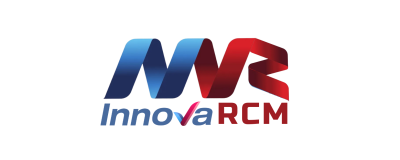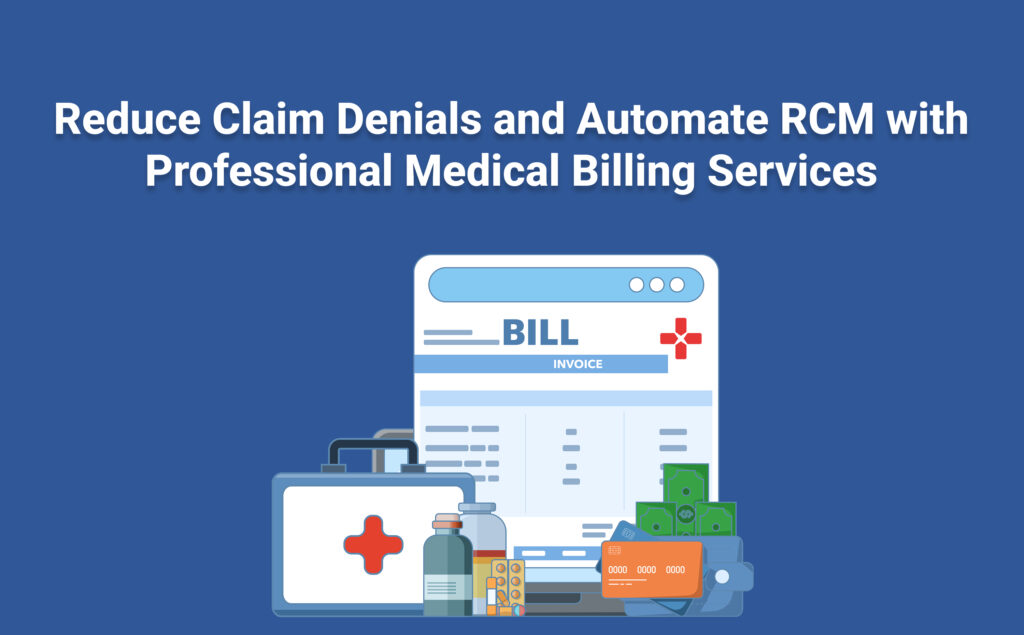In today’s competitive healthcare environment, medical billing plays a central role in ensuring the financial stability of practices. With increasing payer regulations, complex coding requirements, and frequent policy changes, practices are more vulnerable than ever to claim denials. Even when documentation is accurate and coding is correct, providers often face the frustrating challenge of denials caused by Medically Unlikely Edits (MUEs).
MUE-related denials may appear small at first glance, but they often result in delayed reimbursements, cash flow interruptions, and wasted staff hours. At InnovaRCM, we specialize in developing proactive strategies to minimize MUE denials and ensure faster, smoother reimbursements. By combining our expertise in medical billing, denial management, and payer compliance, we help healthcare providers protect their revenue cycle and achieve long-term financial success.
This article will explore what MUEs are, why they matter, and how our medical billing experts at InnovaRCM implement specialized strategies to reduce denial rates for practices of all sizes.
What Are Medically Unlikely Edits (MUEs)?
Medically Unlikely Edits are a set of rules established by the Centers for Medicare & Medicaid Services (CMS). They define the maximum number of units of service that a provider can bill for a single patient, on a single date, under most circumstances.
For example:
- A diagnostic test that can reasonably be performed only once per day will trigger a denial if billed multiple times.
- Certain surgical procedures have strict limits on billable units, regardless of the complexity of the case.
These edits were designed to:
- Prevent billing errors, whether accidental or intentional.
- Reduce fraud, waste, and abuse in the healthcare system.
- Maintain consistency in payer reimbursements.
However, while the intent is valid, MUEs often lead to denials that impact honest providers. Many MUE-related denials are not the result of fraud, but rather due to misunderstanding payer rules, incorrect coding, or missing documentation.
Why MUE Denials Hurt Your Practice
For healthcare providers, every denial creates a ripple effect across the revenue cycle. Denials due to MUEs may seem like minor issues, but they add up quickly, costing practices time, money, and resources.
Here’s why they matter:
- Revenue Delays: Each denied claim puts reimbursement on hold, slowing down your practice’s cash flow.
- Lost Revenue Opportunities: Some denials go uncorrected or expire, leading to permanent loss of revenue.
- Higher Administrative Burden: Staff spend hours correcting, resubmitting, or appealing claims instead of focusing on patient care or other critical billing tasks.
- Patient Dissatisfaction: Repeated errors on bills confuse patients and may damage your practice’s reputation.
- Compliance Risks: Mishandling modifiers or incorrectly justifying MUE-related services could trigger payer audits.
For practices that already struggle with shrinking margins, high denial rates can make it nearly impossible to remain financially healthy. This is where InnovaRCM’s medical billing expertise makes a difference.
InnovaRCM’s Approach to Reducing MUE Denials
At InnovaRCM, our mission is to help providers get paid accurately and on time by creating a robust, proactive billing process that eliminates costly errors. Instead of waiting for denials to occur, we implement a preventive, technology-driven approach to minimize the risk of MUE-related denials before claims are submitted.
Here’s how our comprehensive strategy works:
1. Proactive Claim Scrubbing
Our advanced claim scrubbing tools automatically review claims for potential MUE conflicts before they are submitted to payers. By detecting red flags early, we stop denials before they happen, saving time and money for providers.
2. Expertise in Payer Rules and Policies
Every payer, Medicare, Medicaid, and commercial insurers, has unique policies. Our medical billing team continuously tracks payer rule updates, policy changes, and coding guidelines to ensure full compliance. This proactive knowledge prevents unnecessary claim rejections.
3. Accurate Coding and Documentation Support
We work closely with providers to ensure documentation accurately supports billed services. If multiple procedures are medically necessary, our coding experts make sure claims are prepared with the proper justifications and detailed records, minimizing disputes with payers.
4. Strategic Use of Modifiers
In cases where multiple units of a service are legitimately performed, our coders apply the appropriate modifiers, such as –59 (Distinct Procedural Service) or the X modifiers (XE, XS, XP, XU). This ensures that claims are billed correctly while maintaining compliance with payer and CMS regulations.
5. Real-Time Claim Monitoring and Analytics
We leverage real-time analytics and AI-powered monitoring systems to detect and address potential MUE denials before claims reach the payer. Our dashboards give practices complete visibility into claim status, so providers always know where their revenue stands.
6. Robust Denial Management and Appeals
When denials do occur, our specialized denial management team takes immediate action. We identify the root cause, correct errors, prepare appeals with complete documentation, and resubmit claims promptly. This significantly improves recovery rates and reduces revenue leakage.
Real Results: How Our Clients Benefit
Small Practices: Stability and Efficiency
Family medicine clinics, urgent care providers, and independent practitioners often operate with limited staff and tight budgets. For these providers, even a small increase in claim denials can create overwhelming administrative burdens and cash flow disruptions.
At InnovaRCM, we’ve helped small practices reduce denial rates by up to 35%. By implementing proactive claim scrubbing, eligibility checks, and detailed MUE monitoring, our clients experience:
- Steady cash flow, reducing reliance on short-term loans or credit lines.
- Less administrative stress for office staff, who no longer need to chase down unpaid claims.
- Improved patient satisfaction, since billing questions are resolved quickly and accurately.
Specialty Groups: Expertise in Complex Coding
Specialty practices, such as orthopedics, cardiology, and gastroenterology, face highly complex coding requirements. Procedures often involve multiple codes, modifiers, and bundling rules, which makes them more prone to MUE-related denials.
Our team of medical billing experts specializes in understanding payer policies and applying coding rules accurately. For example:
- Orthopedics: Correctly identifying multiple procedures performed on the same joint and ensuring compliant use of modifiers.
- Cardiology: Navigating complex procedural coding, such as stent placements or ablations, which are subject to strict MUE limitations.
By leveraging our expertise, specialty groups experience significantly fewer denied claims and more consistent revenue streams.
Large Clinics and Multi-Provider Networks: Scaling Success
For large clinics and multi-provider networks, managing billing across multiple departments and providers can feel like an uphill battle. The volume of claims increases the likelihood of MUE denials, which can slow down reimbursement cycles.
At InnovaRCM, we integrate real-time MUE monitoring and advanced claim analytics for these organizations. This results in:
- Faster reimbursement cycles across multiple payers.
- Higher net revenue thanks to fewer write-offs.
- Consolidated reporting that gives administrators complete visibility into financial performance.
By taking a technology-driven approach, we’ve enabled large healthcare organizations to scale without sacrificing billing accuracy or compliance.
The Bigger Picture: MUE Strategies as Part of Revenue Cycle Management
Reducing denials through MUE strategies is just one piece of a larger puzzle, effective revenue cycle management (RCM). At InnovaRCM, we recognize that a holistic approach to medical billing is the key to financial success.
Our end-to-end process covers every step, including:
- Patient Eligibility Verification: Confirming insurance coverage before services are rendered to avoid unexpected denials.
- Accurate Charge Capture: Ensuring every service is documented and billed appropriately.
- Coding and Compliance: Applying the correct CPT, ICD-10, and HCPCS codes with attention to payer-specific requirements.
- Claim Submission and Monitoring: Leveraging automation to submit clean claims quickly and monitor them in real time.
- Denial Management: Identifying root causes of denials, appealing when necessary, and implementing corrective measures.
- Patient Billing and Collections: Simplifying statements and offering clear communication to improve patient payment compliance.
By integrating MUE strategies into this broader process, we help healthcare providers not only reduce errors but also achieve operational excellence in all areas of billing.
Conclusion
Medically Unlikely Edits (MUEs) may seem like small obstacles in the billing process, but for healthcare providers, they can represent a hidden source of lost revenue. Left unaddressed, they lead to denied claims, delayed payments, and financial instability.
At InnovaRCM, we’ve developed a proactive, technology-driven approach to medical billing that reduces denials, accelerates reimbursements, and strengthens long-term financial performance. In a healthcare system where every dollar counts, ignoring MUE denials simply isn’t an option.
Partnering with InnovaRCM means transforming denial challenges into opportunities for financial growth. Whether you’re a small clinic, a specialty group, or a large healthcare network, our team is here to ensure your practice doesn’t just survive, but thrives.



